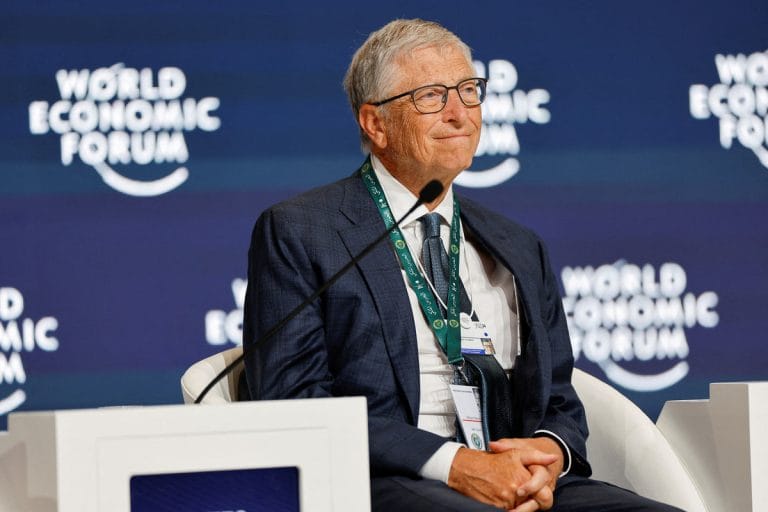🎧 Listen to This Article
In a rare but urgent appeal, billionaire philanthropist Bill Gates has met with U.S. lawmakers and national security officials to warn that his foundation cannot absorb the financial vacuum created by steep U.S. government cuts to global health programs. The founder of Microsoft and co-chair of the Bill & Melinda Gates Foundation is pushing for continued U.S. commitment to key international health initiatives that safeguard vulnerable populations abroad and American health security at home.
Gates’ behind-the-scenes campaign follows drastic measures the Trump administration took, including an over 80% slash in USAID contracts and the freezing of billions in foreign assistance affecting emergency food aid, vaccine delivery, and infectious disease control.
“Bill was recently in Washington D.C. meeting with decision-makers to discuss the life-saving impact of U.S. international assistance and the need for a strategic plan to protect the world’s most vulnerable while safeguarding America’s health and security,” a Gates Foundation spokesperson confirmed.
U.S. Pullback Threatens Lifesaving Programs
The administration is reassessing funding for approximately 30 major global health programs, including support for organizations such as Gavi, the Vaccine Alliance, the Global Fund to Fight AIDS, Tuberculosis and Malaria, and initiatives under PEPFAR (President’s Emergency Plan for AIDS Relief).
Combined, these programs have received billions in U.S. contributions, with Gavi alone receiving $300 million annually and the Global Fund over $1 billion. The funding freeze and reassessment have triggered alarm among global health advocates, who fear that disruption to vaccine distribution, HIV treatment, and malaria prevention could reverse decades of progress.
At meetings with Republican and Democratic lawmakers, Gates clarified that while his foundation has a significant budget of over $8 billion annually, it is not positioned to backfill funding gaps created by a withdrawal of U.S. support.
Strategic Consequences for Global and U.S. Health Security
Gates’ outreach to the National Security Council reflects a broader message: global health isn’t just about altruism. It’s about strategic foresight. Weakening international public health efforts can lead to greater global disease spread, threatening U.S. interests, particularly in an era of increased mobility and climate-driven epidemics.
According to sources close to the Gates Foundation, discussions with security officials also included urging continued U.S. support for the World Health Organization (WHO) and polio eradication efforts, two areas directly impacted by President Trump’s “America First” approach.
“No foundation can replace the leadership role of the U.S. government in global health,” said one senior Gates Foundation source. “And the risk of doing too little is far greater than the cost of doing enough.”
A Battle Between Diplomacy and Domestic Priorities
With the U.S. administration focused on reallocating foreign aid resources under new ideological and political priorities, the outcome of Gates’ lobbying may depend on bipartisan recognition of the long-term costs of retreating from global health leadership.
As the Gates Foundation weighs whether it can continue supporting impacted programs, the stakes are clear: global health partnerships forged over decades may falter just as the world faces overlapping public health crises from pandemics to resurgent diseases like measles and polio.
For further details, clarification, contributions, or any concerns regarding this article, please get in touch with us at editorial@tax.news. We value your feedback and are committed to providing accurate and timely information. Please note that our privacy policy will handle all inquiries.



